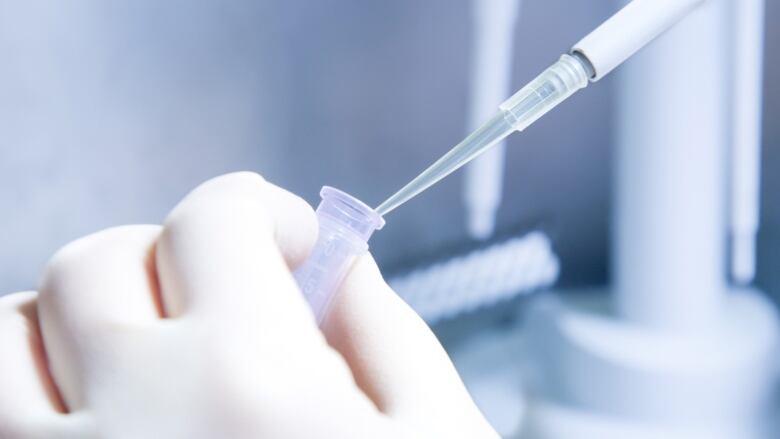Who owns your DNA? The question matters to some Nova Scotia adoptees
Some adoptees in Nova Scotia are putting their personal data at risk. The province could help.

Nova Scotia is the only province where adoption records remain closed. Every other province has embraced a movement that makes previously sealed adoption records accessible to the people who are directly affected by them: adult adoptees who want to know where they came from, and birth parents who want to know what became of the children they placed for adoption.
But paradoxically, the closed records don't mean that adoptees can't find their birth relatives. Instead, many adoptees are seeking, and finding, workarounds. Adoptees are turning to DNA tests and discovering the names of birth relatives. Recently, the United Church ministerTrisha Elliott wrote in Broadviewthat "For adoptees like me, the accessibility of DNA testing is a cataclysmic game changer."
The publicAdopted in Nova Scotia Facebook groupis filled with stories of adoptees finally locating their birth relatives by using direct-to-consumer DNA tests. One woman recently shared that through an Ancestry DNA test, and uploading her results to another site called GEDmatch, she was able to find a half-sister. Both women were part of this Facebook group, and had been searching for one another, but because one had been given misinformation about her background, they were not able to identify one another as a birth relative until doing the DNA test.
As an adoption coordinator from another province observed at a recent meeting, with DNA testing, "the world is making end runs around the government's black box."
But this is not a good state of affairs. Because Nova Scotia has not yet modernized its adoption records law, adoptees and birth parents in the province are giving away their DNA instead of turning to government for support.
Here's why this is a problem.
As the British Medical Journal wrote ina recent discussion of direct-to-consumer genetic testing, "companies might collect, store, sell, or undertake research on your genetic data. Do you find that acceptable? Do you know who might have access to your data?"
To be sure, genetic data is currentlyprotected under Canadian lawthat forbids genetic discrimination for purchases such as life insurance policies. But the DNA company's own privacy and data protections are a bigger concern.
Legal experts in the U.S. were alarmed when a U.S.detective obtained a warrant to searchthe full database of GEDmatch, a direct-to-consumer DNA testing company, last year.
Late last year, thePentagon advised U.S. military service membersnot to use direct-to-consumer DNA tests because they "could expose personal and genetic information, and potentially create unintended security consequences."
When you mail off your own DNA, you've also given the company access to half the genome of your immediate siblings, and smaller portions of your cousins' and, most likely, without their consent.
Dalhousie medical student Michael Mackley reminded Christmas shoppers in December that "genetic results not only affect us, but our family." His point was that when you mail off your own DNA, you've also given the company access to half the genome of your immediate siblings, and smaller portions of your cousins' and, most likely, without their consent.
Many adopted people want to know who their birth parents were. They may be curious about their ethnic origins, interested to reach out to relatives, or in dire need of their family medical history. And there's no question that DNA testing has made it possible for hundreds of adoptees to discover birth relatives. But the costs are high. When they send off their spit for analysis, they've joined millions of others who have signed over their genetic data to private companies. If Nova Scotia's adoption records were unsealed, adoptees wouldn't be in this position.
Last year, the Nova Scotia government carried out consultations with Nova Scotians about changing this law. Adoptee-rights activists are still waiting to hear the outcome of those consultations.
If the Nova Scotia government joins the rest of the provinces in deciding to make adoption records and original birth certificates more accessible, Nova Scotian adoptees and birth parents will be able to find their kin without giving away their genetic data. And that's good for them and for everyone who shares some DNA with them.












_(720p).jpg)


 OFFICIAL HD MUSIC VIDEO.jpg)
.jpg)



























































































